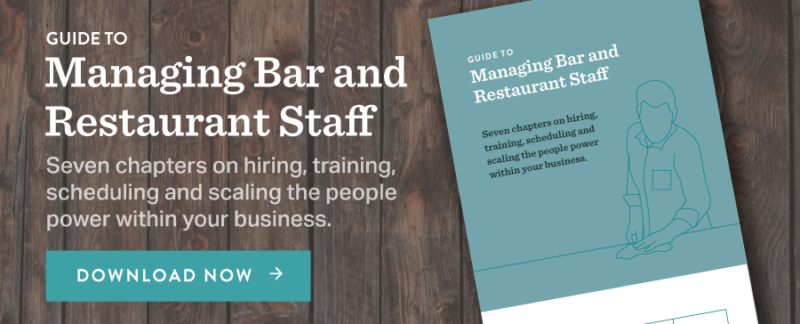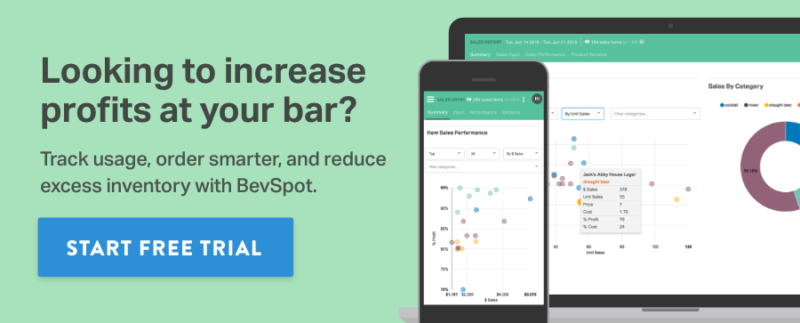Whether for the environment or for your bottom line, composting can help your business go green.
As the world becomes more environmentally aware, it’s becoming easier and more economical to go green. One method that impacts both the environment and your bottom line is composting food waste. So how does a bar or restaurant start a composting program?

Composting program basics
Composting breaks down organic material into useful and nutrient rich soil. Most food scraps (dairy, bones, and meat, and oil being major exceptions), drink garnishes, paper napkins, cardboard, foliage, and coffee grounds and filters can all be put into the bin.
Why bars and restaurants should compost
Food waste is one of the largest contributors to landfills in the world, accounting for 1.3 billion tons every year. Restaurants are responsible for around 40% of this waste globally. Composting allows this waste to return nutrients to the soil, keeping it out of landfills. Using compost-enriched soil also eliminates the need to use pesticides that can runoff and further harm the environment.
Running a compost program at your bar or restaurant has both financial and environmental benefits on a few different levels. Most establishments pay for their waste removal by the pound. Specifically, their waste is measured by how much of it is going to end up in a landfill. Reducing your establishment’s output to landfills through composting will have a direct impact on your bottom line.
How to build a composting bin
To create a working compost bin, follow these easy steps:
- Check rules and gather supplies
In-house composting laws differ from state to state, so make sure you’re familiar with all the rules and regulations. Gather the proper supplies, like biodegradable bin liners and a shovel or spade for turning the soil.
- Add soil
Before you throw in any clippings, coat the bottom of the bin with a few inches of fresh soil so you have a base to work with. If you want to go the extra mile, add a new layer after every few buckets of scraps. Adding earthworms will speed up the decomposition process.
- Fill with materials
Sort out your compostables and add them to the pile. It’s important that everyone has a firm understanding of what does and what does not go into the bin.
- Turn
Make sure to disrupt and turn the compost every few days. Use the spade to move everything around and make sure the scraps are all breaking down. Also check that your pile stays moist so that the microbes are happy.
- Repeat and watch
It can take months for batches to fully break down, but the wait will be worth it. Follow the above steps and wait for your compost to turn into a rich, dark and moist soil.
How to implement your own composting program
- Find a local partner
Will you run the compost entirely in-house or will you pay a carry-away service? Will you donate the compost and soil to a local collective, or does it make more sense to simply have it taken away and be done with it? Use sites like Find a Composter to connect with locals in your area to partner with.
- Find a home for your compost
Composting is meant to be a beneficial process to your establishment. Don’t ruin the flow of your bar and kitchen by plopping a compost bin in any old place. Find a spot that fits into your space and is accessible for a majority of staff handling food.
- Engage your staff
Get your team excited about the new initiative early on. Go further than just training everyone on what does and what does not constitute compost. Enlist your leaders and those excited about the composting program to spread the message.
- Engage the community
Once you’ve got your program up and running, don’t hide it! Educate the community on the benefits of composting. Your customers will engaged with you on a whole new level, and you may even find a new customer base. Uniting a community on the mission is good for both business and the planet.
Composting isn’t an overnight solution to anything. But if you put in the work, the benefits far outweigh the cost. A healthier planet, an engaged base of patrons, and a healthier bottom line are all goals that every business should aspire to.

Schedule 15mins to chat with a product specialist
Start a FREE Trial Today! BevSpot offers full product education and account setup for all customers! No card Information needed!



